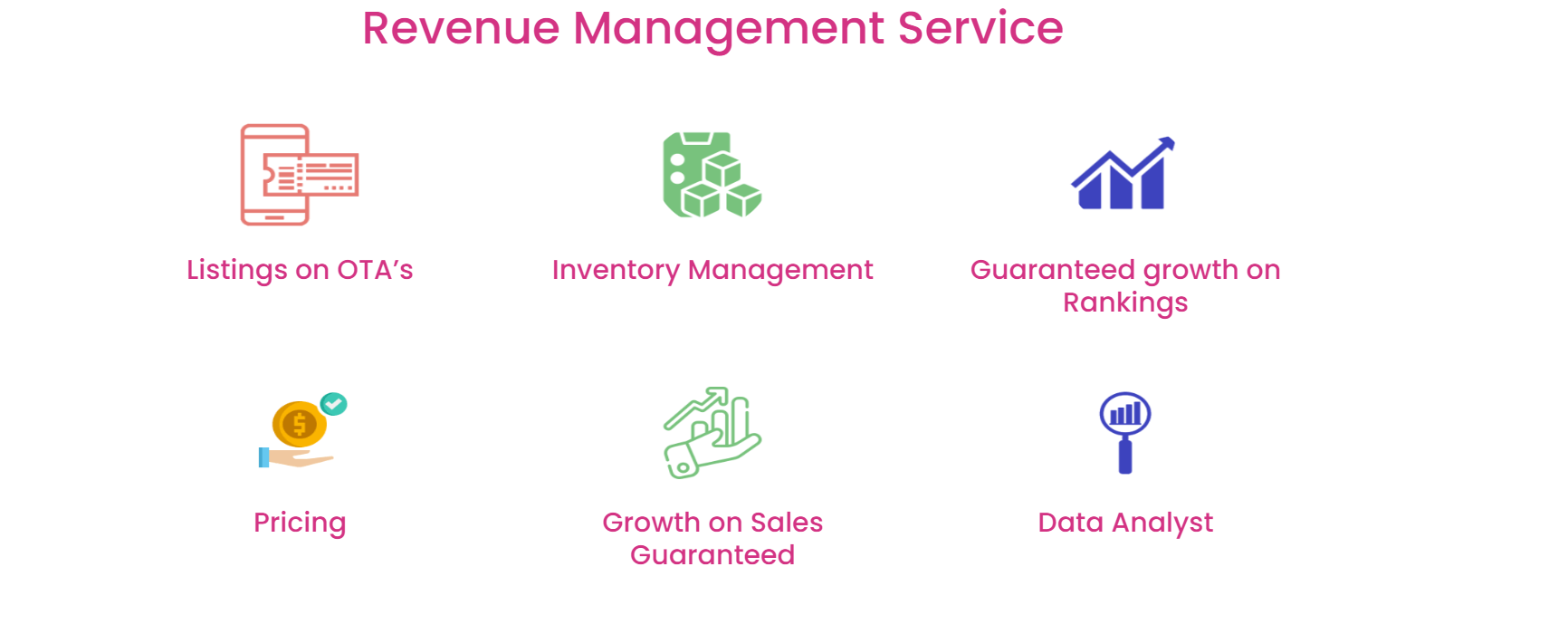Revenue Management
Revenue Management
Revenue management is a vital component of hotel management that focuses on optimizing revenue and profitability by strategically managing room rates, occupancy levels, and other revenue streams. Here are some key concepts and strategies related to revenue management for hotels:
-
Understanding demand: Hotel managers need to have a clear understanding of demand patterns and trends, including seasonal fluctuations, events, and market segments. This knowledge helps them to adjust room rates and inventory levels to maximize revenue.
-
Dynamic pricing: Dynamic pricing involves adjusting room rates in real-time based on demand, competition, and other factors. Hotel managers can use revenue management software to analyze market data and set optimal prices for each room type.
-
Inventory management: Hotel managers need to monitor room availability and adjust inventory levels based on demand. This can involve overbooking, allocating rooms to different distribution channels, and adjusting stay restrictions.
Channel management: Hotel managers need to manage their distribution channels effectively, including online travel agencies (OTAs), direct bookings, and third-party wholesalers. This involves negotiating commissions, managing availability, and optimizing pricing and promotions for each channel.
-
Forecasting and budgeting: Hotel managers need to develop accurate forecasts and budgets to guide their revenue management strategies. This involves analyzing historical data, market trends, and other factors to predict future demand and revenue.
-
Data analysis: Revenue management requires detailed data analysis to identify trends and opportunities for optimization. Hotel managers can use revenue management software and business intelligence tools to analyze data from multiple sources and make informed decisions.
Overall, effective revenue management is essential for hotels to optimize revenue and profitability. By understanding demand, dynamically pricing rooms, managing inventory and channels, and analyzing data, hotel managers can achieve better financial performance and stay competitive in the market.


Why is Revenue Management important?
Small hotels and independent properties often do not have the necessary financial resources to employ an experienced revenue manager and therefore are at a competitive disadvantage versus larger resorts.
The power and strategic importance of an effective revenue management and online distribution strategy should not be underestimated, here are some of the core benefits:


Revenue management is a critical function for hotels to optimize their revenue and profitability. It involves analyzing demand patterns, pricing, and inventory to maximize revenue and minimize costs. In this content, we will discuss revenue management strategies for hotels.
Know Your Demand Patterns: The first step in revenue management is to understand your hotel’s demand patterns. Analyze data on past bookings, cancellations, and no-shows to identify trends and forecast future demand. This information will help you adjust your pricing and inventory to meet demand.
Set Room Rates: Pricing is a crucial component of revenue management. Hoteliers need to set prices that are competitive, attractive, and that can still maximize revenue. One of the best ways to do this is by using dynamic pricing. Dynamic pricing is the practice of adjusting room rates based on demand, season, and other factors.
Manage Inventory: Hoteliers need to manage their inventory to maximize revenue. This means ensuring that they have the right mix of room types available at the right time. They also need to be aware of any constraints that might limit their inventory, such as seasonal demand or special events.
Upsell Services: Upselling is an excellent way to increase revenue. Hotels can upsell by offering additional services or amenities, such as room upgrades, spa services, or late checkouts. Upselling can be an effective way to increase revenue while also enhancing the guest experience.
Focus on Customer Experience: The guest experience is essential in revenue management. A positive guest experience can lead to repeat business and positive reviews, which can drive more bookings. Focus on providing excellent service, personalized experiences, and amenities that guests value.
Monitor Your Competition: Finally, hoteliers need to keep a close eye on their competition. Monitor their pricing, inventory, and services to ensure that you are competitive. Identify any gaps in the market and explore ways to fill those gaps.
In summary, revenue management is a critical function for hotels to maximize their revenue and profitability. By understanding demand patterns, setting room rates, managing inventory, upselling services, focusing on the customer experience, and monitoring competition, hotels can optimize their revenue and achieve their financial goals.
Address
OfficeNo: #Unit 5ES7-G, Mani Casadona, East Tower,11F,04, Street Number 372, Action Area I, IIF, New Town, Chakpachuria, Kolkata 700156.
Contact
+91-9563457743
+91-9733715326
contact@revgrow360.com
sales@revgrow360.com
